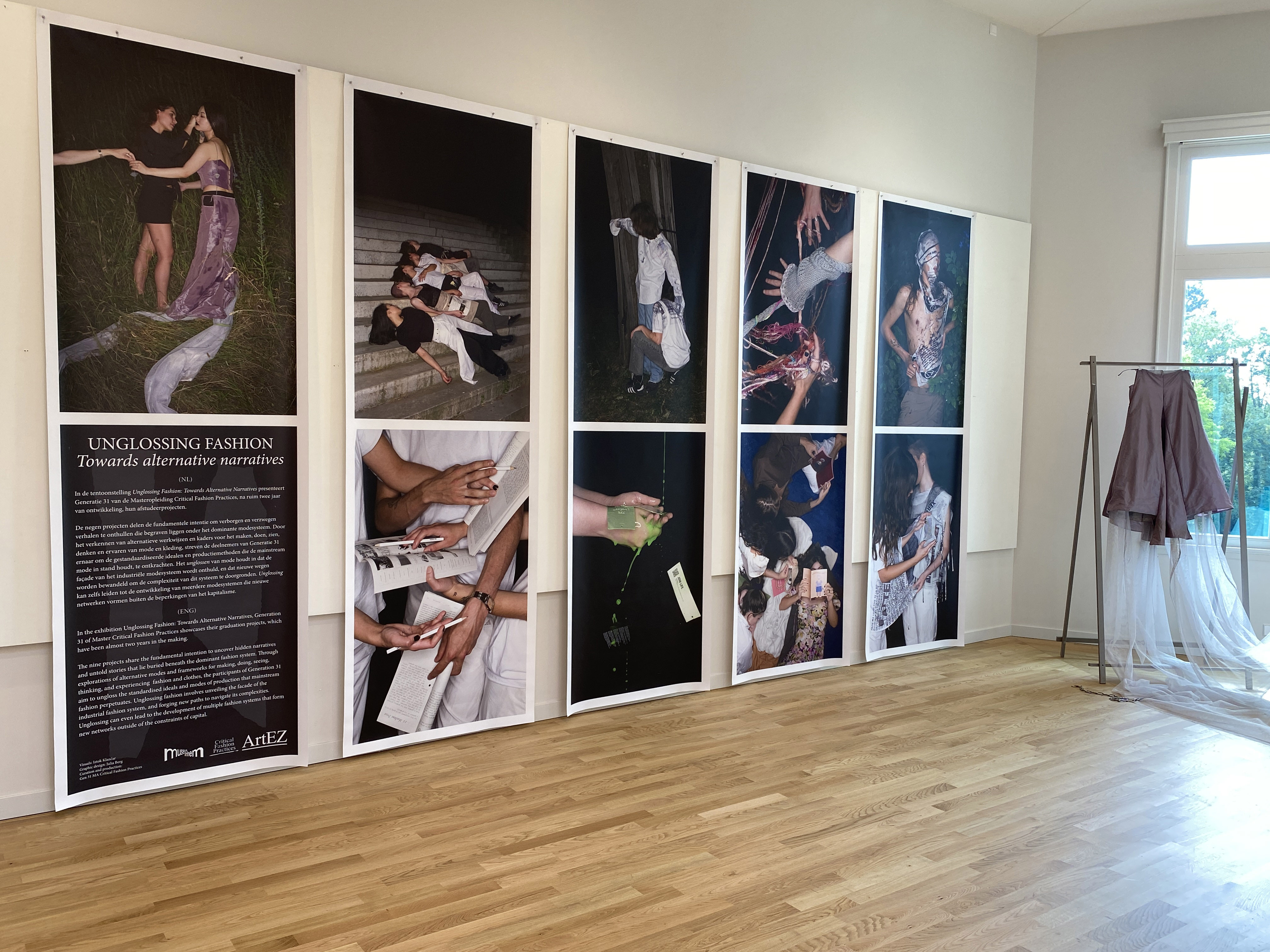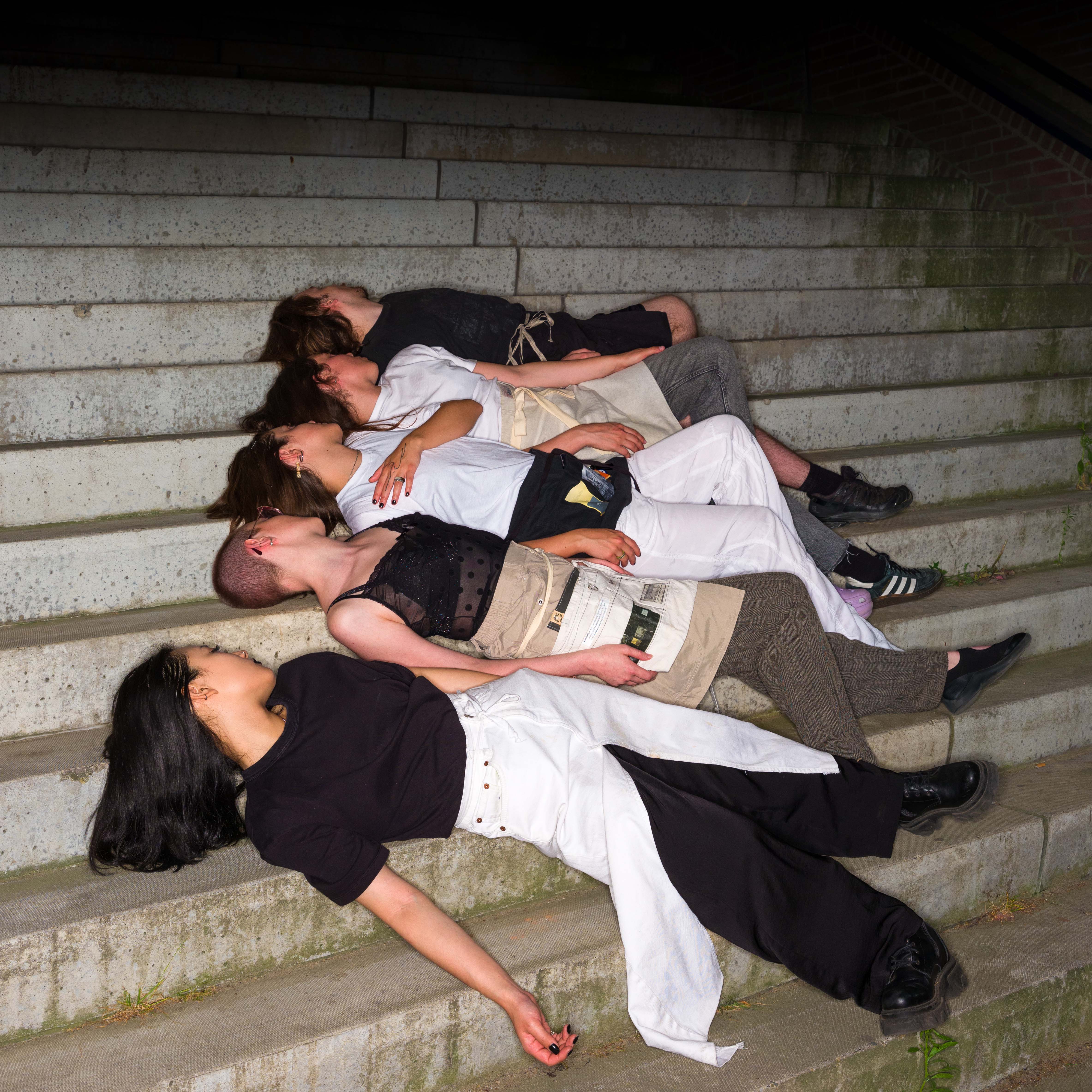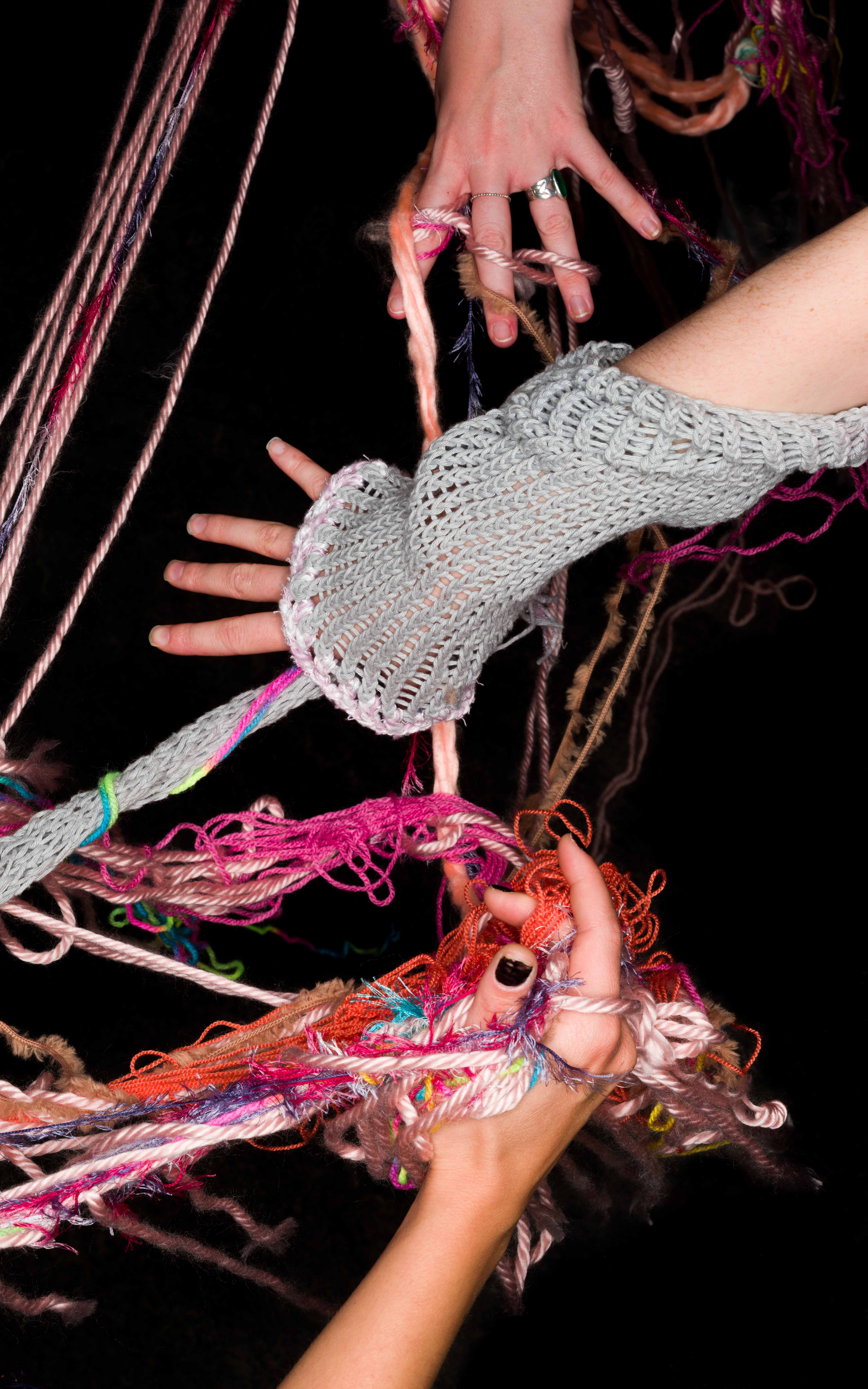Unglossing fashion through care and community
- Fashion
Italy, Mexico, the Netherlands, South Korea, Ecuador: these are just some of the countries that the current graduating class of the two-year master’s course Critical Fashion Practices, “Generation 31,” are from. Generation 31’s participants came to this course craving an alternative path forward in the fashion industry. They are now entering the professional field with clear visions of themselves and their mark on the fashion world, through a collective vision of care

Diverse backgrounds, diverse perspectives
When asked to define themselves, every member of the graduating class of 2023 immediately looks to each other. This shows who they are as a class to a T. Creating space for others’ perspectives and differences is in their DNA. Coming from all over the world, they have diverse perspectives to match, with members coming from an academic history background to small business ownership to growing up in a family of garment workers.
This diversity is embraced by all students and helps them connect through their differences. As Annika Lette, from the Netherlands, describes it: “Because we come from such diverse backgrounds, we always make sure that we hear what everyone has to say. I think that’s a defining factor in our class. Everyone feels heard, and great care is taken to do that.” This notion of care is something felt by the whole class. Jen Yoon, from South Korea says: “I think ‘care’ reflects our vibe really well. We all have very different ideas, but we can always find common ground on the topic of care.”

Exhibition "Unglossing Fashion" in Museum Arnhem, featuring each participant’s finals project.
From commercial focus to art
Most of the graduates from the master's course in Critical Fashion Practices have backgrounds in more commercially-focused fashion design programmes. However, none of them saw a future for themselves following that path. Alia Mascia, who pursued a bachelor's degree in Fashion Design in Italy before enrolling in the master's course, shares her experience: “After my programme in Italy, I felt the need to explore the interdisciplinary nature of my work, as I couldn't envision myself aligning with the fashion industry.”
I think ‘care’ reflects our vibe really well. We all have very different ideas, but we can always find common ground on the topic of care."
Jen Yoon, graduating participant Critical Fashion Practices
Annika had previously studied Fashion and Textile Technologies at Saxion University of Applied Sciences. However, she says, “the more I learned about the industry, the less interested I was in working in it.” Since she started at ArtEZ, she has shaped her fashion practice into something more art-based, using traditional handcraft techniques as a tool to educate and create community healing.
It was the same for Mariana Parra, from Mexico. Mariana grew up in a family of garment workers. "I saw the bad treatment my parents would get from an early age. I wanted to help my family, so I decided to study a Bachelor of Fashion Design at Universidad de Guadalajara. However, that programme was too commercially focused for me. I see myself as a maker, but I want to be a maker with cause and impact.” This vision has crystallised into two interests that Mariana explored artistically during the Critical Fashion Practices course: ageism in fashion and the negative effects of the garment-making industry on communities.

Unexpected personal growth through research
The master’s course has exceeded expectations for the students, in due part to the space it gives students for individuality and self-exploration in a supportive setting. For Maria Spadoni Battistoni, from Italy, engaging with artistic research as a concept helped her immensely. Maria: “I have felt such a big growth within myself as a person, and I didn’t expect to. Because your research is so personal, you develop personally along with it. I feel I can confidently work independently now and manage a practice, which was not something I felt I could do before.”
Alia feels similarly: “For me, the class Artistic Research itself was invaluable. It helped align me with my research topic in a clearer way because of the lessons’ structure. In that class, we experimented a lot with the intertwinement of practice and theory.” Maria adds: “What’s great is that we’ve actually also been doing that in a less obvious way for the whole two years.”

Trusting others and themselves
Jen’s time in the course was also profoundly enhanced by her artistic research. “For me, this programme was very humanising. The research process showed me what I could do, not just as a researcher, but as a human. It taught me what I bring to the table just because of who I am.” Mariana had a similar experience. “Not only have I gained more self-confidence like Jen, but I’ve also learned to trust other people more. It means a lot to me to know that I can ask for help or talk about my ideas with my colleagues and it will be well-received.”
Dual interests
Leah Gaynor, from Ireland, came from an academic background in history at Trinity College Dublin. Her time in the course has helped her acknowledge, accept and fully embrace her dual interests in writing and fashion. Figuring out how to combine them has resulted in her finals project, which focuses on how fast fashion companies communicate their supposed sustainable fashion practices through in-store merchandise. This notion of making fashion more truthful and “care-full” is a theme of Generation 31’s entire finals exhibition.
The community-based structure of the master’s course shone through in every aspect of the curriculum and helped me feel safe to share my voice."
Unglossing the fashion industry
The exhibition, titled “Unglossing Fashion: Towards Alternative Narratives,” will showcase the generation’s diverse projects that have been almost two years in the making. The Generation 31 participants are aiming to “ungloss” and reveil the standardised ideals and modes of production that mainstream fashion perpetuates. The nine projects share the fundamental intention.

All of the featured projects employ published matter as a tool to share alternative narratives for fashion. Alia Mascia’s work centres around garments and publication, especially in counter-cultural scenes, examining how we publish and share information through garments. Jen Yoon’s work is self-examining, exploring affirmative practices of self-care through DIY garment making of aprons and pockets. Annika Lette dove into how to create stronger communities through craft making such as knitting, or “crafting kinship.” These are just a few examples of Generation 31’s approaches to fashion that you can see in their work, available .


